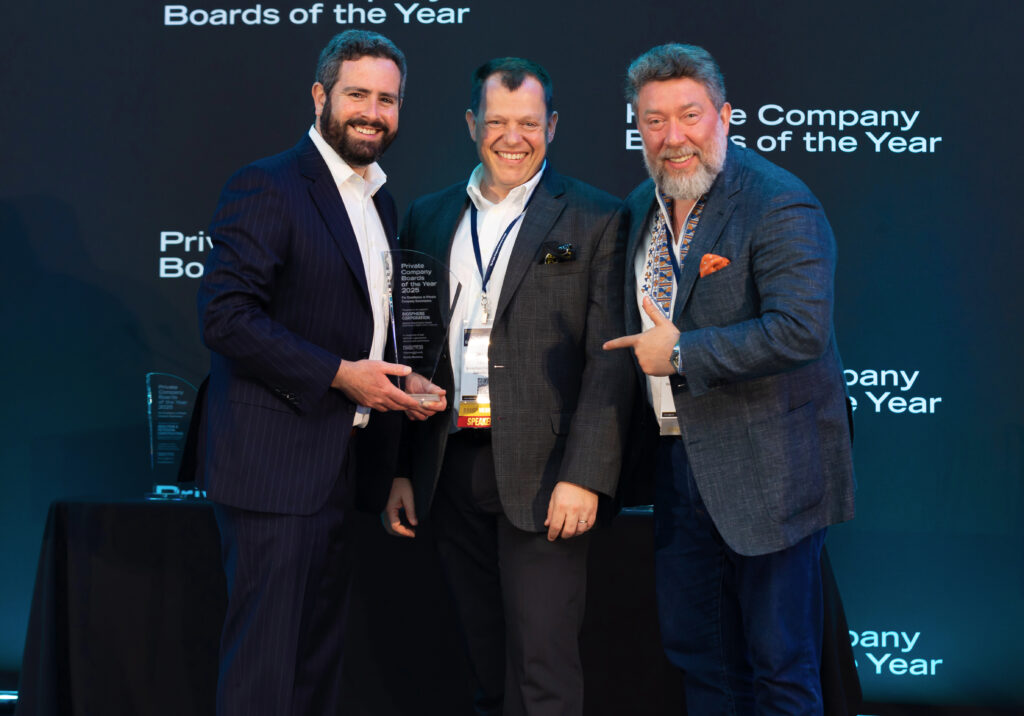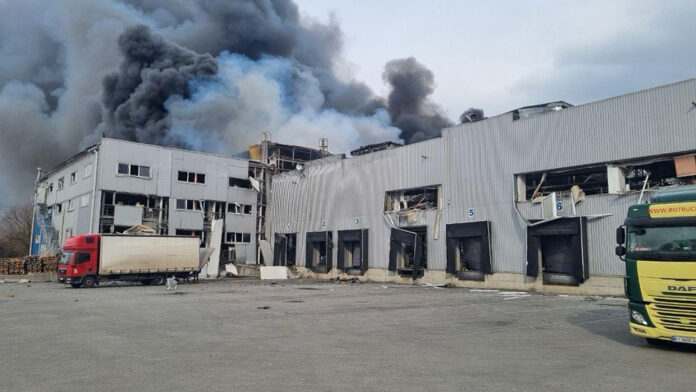When I was invited to chair the newly formed board of Biosphere Corporation, I understood the stakes were high. Ukraine’s largest manufacturer and distributor of household and hygiene products was facing the existential challenge of operating in a war zone. But what I didn’t fully appreciate at the time was how deeply our governance would be tested, not just as a framework for oversight, but as a mechanism for resilience, agility and trust under extreme conditions.
Today, more than three years into Russia’s full-scale invasion of Ukraine, the reality is sobering. One of Biosphere’s warehouses was recently struck by a missile. The domestic market has shrunk under pressure from inflation, currency devaluation and logistics disruptions. Talent acquisition and employee safety remain daily concerns. And yet, the company has not only endured, but it has thrived. We’ve expanded into new international markets and channels, strengthened our product portfolio and sustained profitability.
Behind this transformation is a management team of extraordinary grit, an employee base with inspiring courage and a board committed to leading through — not around — the storm.
A Board Built for a New Reality
Biosphere was founded in 1997 by Ukrainian entrepreneur Andriy Zdesenko, who continues to lead the company as CEO and owner. When the board was created, it was the company’s first. Its purpose wasn’t to check a governance box. It was to help navigate the company’s most critical inflection point: survival and growth amid war.
I was asked to serve as chairman based on my international experience in consumer goods. Having helped brands expand across borders, define strategy and execute operational transformations, I’ve always worked “sleeves rolled up,” not just offering strategic platitudes. That orientation has been critical. Especially in wartime, strategy without execution is just theory.
Our board is intentionally global, diverse and deeply functional. In addition to Andriy and myself, it includes independent directors from multiple countries, each with deep expertise in innovation, branding, human capital and strategic operations. We meet quarterly in-person and convene frequently online for urgent matters, ranging from e-commerce operations to succession planning and strategic restructuring.
Through it all, our purpose remains constant: to deliver action-oriented governance that supports management with clarity, challenge and continuity.
Governing Under Fire
The toughest decision we faced wasn’t a vote. It was defining how best to support a leadership team already under relentless strain. In war, there is no playbook. And sometimes — maybe often — much of the board’s value lies not in what it says, but in how it shows up.
We focused on three imperatives:
Succession and continuity. We developed robust emergency succession plans, including second-in-command coverage across all executive roles. This work was done quietly but urgently, ensuring the company could continue even if a senior leader became unavailable. We approached it quietly, respectfully and comprehensively.
Governance that reflects reality. Good governance must be lived, not just logged. While annual board self-assessments are increasingly standard, in our context, they became a mandate for reflection and recalibration. We asked the hard questions: Are we adding real value? Are we helping the company stay agile? Should we be stepping in more — or less? This deliberate self-questioning helped calibrate our oversight and ensured we remained aligned with operational needs.
Human responsibility as a board duty. Perhaps our most humbling conversations have centered on how to support employees and their families directly affected by the war. Biosphere has extended care in tangible ways, including support for families of fallen team members. For us, “duty of care” is not an abstract governance principle. It’s an ethical commitment that transcends financial metrics.
A Chairman/CEO Relationship Forged in Crisis
One of the most important enablers of effective governance is the strength of the chairman/CEO relationship. Mine with Andriy is based on mutual respect, frequent dialogue and shared purpose.
We speak regularly between meetings — to exchange updates, challenge each other’s thinking and pressure-test decisions. Over time, trust has deepened into a professional friendship. But our dynamic remains disciplined. We debate, we listen, and we act with speed and clarity. This trusted partnership has been a stabilizing force in moments of uncertainty and has helped avoid the strategic drift or misalignment that can be fatal during crises.
Lessons in Agility, Action and Humility
Chairing this board has taught me what no case study ever could: Governance is not static. It’s a living system. And in times of crisis, its value is measured in adaptability, not architecture.
Anyone can create a strategic plan. But when a missile hits a warehouse, you don’t revisit a slide deck. True leadership mobilizes teams, reroutes supply lines and keeps trucks moving. That’s what Biosphere has done again and again.
While I’m proud of the board’s contribution, I am even more humbled by the courage of Biosphere’s employees who show up each day with grit and resolve. If the board has done its job, it’s because we’ve listened, adapted and been inspired by this company’s determination.
Governance that Withstands the Storm

For directors navigating turbulent environments — whether they be geopolitical, economic or transformational — several principles stand out.
- Prioritize trust in the board–management relationship. In high-pressure situations, trust is the foundation for rapid, sound decision-making.
- Embrace constructive tension. Boards add value by challenging management thoughtfully — not through deference or obstruction, but through informed debate.
- Stay close to the business. Effective governance in private companies requires proximity, both strategic and operational.
- Be willing to lean in. Private company boards are most valuable when they serve as active stewards of purpose, not passive reviewers of reports.
- Govern through an ethical lens. Especially in crisis, people decisions matter as much as financial ones. A board’s legitimacy rests on its moral compass.
Resilience Is the New Imperative
Biosphere’s board believes it is our responsibility to not just steward performance, but to amplify the company’s resilience. This experience has reshaped my own view of board service — not as a position, but as a commitment.
Looking ahead, whether in public or private boardrooms, I carry with me a renewed conviction: Leadership and governance are not about titles or structure. They’re about who shows up when it matters most, and how.


